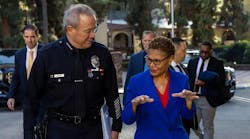There is no “I” in Team… So says the old management adage. Lately this saying and the whole team analogy has been propagated to mean that you should subrogate your wants, needs, interests or what benefits you to the bigger “team.” “All you think about is yourself,” they say. “Take a look at the bigger picture,” they entwine. “You need to look at what benefits the team.” I find it ironic that what these selfsame individuals really mean that you should do what makes them look good and benefits them.
There may not be the letter “i” in the word team but there are players – individual human beings who are on the field battling it out not on the sidelines with the coaches.
Let’s examine this sports analogy and see if it stands up from the grunt’s point of view.
The Coach
Let’s put you in a hypothetical scenario. You are now the head coach of a boy’s football team. Football is a contact sport which means that there will be contact between players on the field. You want your boys to win, to be uninjured, to develop a love for the game, to learn lessons far beyond the gridiron which will resound with them for the rest of their lives.
If it was in your power as coach, would you conduct poorly structured or minimal training before “the big game?” Would you put them on the field with the cheapest equipment you can get away with? Would you give them a playbook to go by and then not use it when you were losing? Would you treat them like they existed to serve you as coach versus your position exists to serve them? How about telling them that they can only hit back after being hit by another player first? Would you select your players based on their lack of aggression? If one of them makes a mistake on the field would you ridicule and attack them more vociferously than you would an opposing team member? If one of them falls would you leave them out on the field and not rush to their aid? Have you developed systems of treatment and support for your injured players or do you wait until a player is down before you think about it? If/when one of your players got a really good, legal hit on an opposing aggressive player who was then injured, would you pull him in on Monday and second guess his actions based on the game film? Would you suspend that player for a game or two for that legal/aggressive hit?
I submit that a good, professional high school football coach would not do any of the foregoing. That is, not if they had the interests of the players at heart. Not if they truly cared for their athletes and were looking out for them in their role as coach, leader, mentor.
My question is, if we wouldn’t treat high school football players this way, and we certainly would not treat pros who get paid to play this way and have any kind of success, then why do we treat cops this way?
Why do we poorly train and prepare them? Why do we develop policy, train them in its implementation and then not follow it? Why do we treat grown men and women whose very lives hang in the balance of their actions, like they were immature adolescent children? Why do we oftentimes promote people who have never really played the game to a high level? I mean, if the only exposure to football a coach had was sitting on a Barcalounger watching others play, how can he effectively lead his team?
In the 1987 Paramount movie The Untouchables, Robert DeNiro plays Al Capone. In one scene we see “Scarface Al” giving a post dinner pep talk to his crime bosses:
“What draws my admiration? What is that which gives me joy? Baseball.” *Capone picks up a baseball bat. “A man stands alone at the plate. This is the time for what? For individual achievement. There he stands alone. But in the field. What? Part of a team. Looks, throws, catches, hustles part of a one big team. Bats himself the live long day, Babe Ruth, Ty Cobb, and so on. If the team don’t field, what is he? Follow me? No one. Sunny day the stands are full of fans, what does he have to say? I am going out there for myself. But, I get nowhere unless the team wins.” Capone then hits one of his underbosses in the back of the head with the bat and beats the man to death. The movie is a vivid reminder that if, you don’t serve the boss on his “team,” you get beat to death.
It is amazing the dedication and drive players will exhibit when they know the coach cares and is looking out for them. Winning teams have this synergy between players and coaches. Compare that with beating them over the head with a stick.
A Team
I have been on “teams” before. Whether sports teams or tactical teams, I have been a member of high performance groups of individuals. I’ve also coached, trained and led teams. Comprised mostly of Alpha males the stakes were high for these teams oftentimes. More than a couple of members of one team were involved in deadly force encounters where suspects were shot and killed as bullets flew in both directions.
Their performance and winning on that team in those armed encounters was based on individual and team skills. Leadership meant giving the team members the opportunity to perfect their personal skills as well as integrating those skills with others to ensure a more successful outcome. Whether a narcotics search warrant, felony warrant execution on a dangerous subject or barricaded gunman with shots fired, multiple well trained operators or team members are a better strategy than one or two officers with minimal training thrown at the problem. Little “leadership” was necessary as the mission unfolded. All the tactics, techniques and procedures had been “preloaded” in training. It was the team leader’s job to facilitate, plan (with team members input) and then support his men as they “executed” the play. It was not “stand here and point your gun in this direction” micromanagement.
Some “leaders” could not and cannot deal with this. In one shooting a team leader was fired by a boss on scene. Fortunately a leader in a management position prevented that action. I can remember this captain saying to me, “I’ll take responsibility for this.” What a concept. I looked at him and said, “F that Cap, that dead guy lying over there is responsible.”
“I” in Team
There may be no letter “i” in team but there is a “me.” Whether an officer on the beat, detective or other LEO, these team members need bosses, coaches if you will, who treat them with respect, see to it that they have the best training and equipment possible and support and defend them, even in tough times. They will perform for you if you do so. Winning in police work means being physically whole and uninjured, as well as psychologically and emotionally healthy. This is not served by the players (officers) serving the coach but rather by the coach serving the players. It is the only sound team strategy. It makes winning teams and lasting legacies. It is the right way to coach a team.


